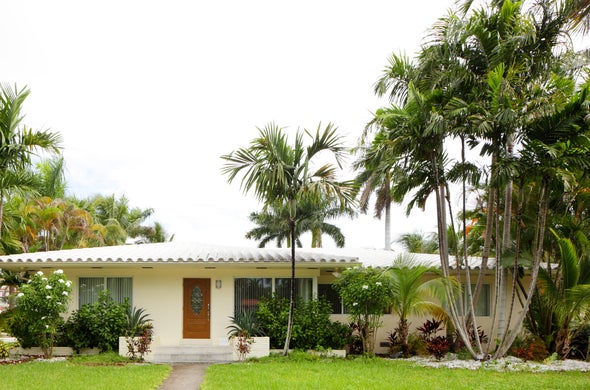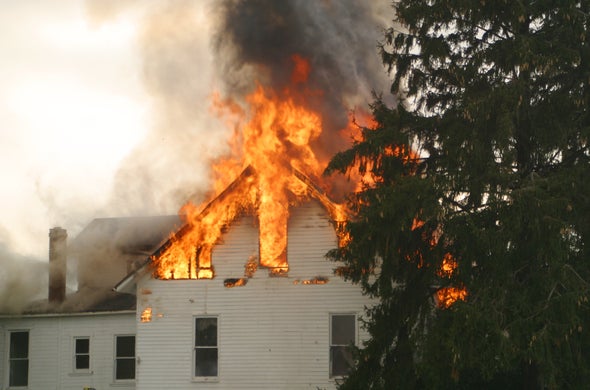Why you'll love Kin
You get more than coverage — you get a team that follows through.
Here to help
We reach out before, during, and after major weather events to make sure you’re okay — and to assist if you need to file a claim.
24/7 claims support
Easily file a claim over the phone with a member of our support team or online in your Customer Portal.
5-star care
Licensed Kin agents are easy to reach and ready to listen. Contact us via email, phone, or live chat.
What does landlord insurance cover in Florida?
Safeguard your investment and the people who count on it — with coverage that works as hard as you do.
Property coverage
for the dwelling structure, other structures, and any personal property used to service the rental that you leave onsite.
Fair rental value coverage
if a covered event makes your property temporarily unfit for occupation.
Personal liability coverage
if someone is injured on your property and you are held legally responsible.
Common questions about Florida landlord insurance
How much does landlord insurance cost in Florida?
Kin home insurance customers in Florida pay an annual average of $1,835 for $300,000 in dwelling coverage as of January 2026. However, landlords often pay an average of 15% to 25% more for coverage. How much you'll pay to protect your property will depend on a range of factors, including:
-
Property location. Properties in coastal or high-risk flood zones generally cost more to insure.
-
Replacement cost value. Higher-value homes require more coverage, meaning higher policy premiums.
-
Type of rental. Short-term rentals and multi-unit properties often carry higher risk than long-term, single-family rentals.
-
Coverage selections. The limits, deductibles, and endorsements you choose affect your rate.
-
Property condition and age. Older homes or those with outdated roofs, plumbing, or wiring can raise costs.
What additional coverages should landlords consider in Florida?
Depending on the unique risks associated with your property, you may want to consider one or more of the following:
-
Flood insurance. Flood damage is not covered by a standard landlord insurance policy in Florida, so your property won’t be protected against flood events, including those caused by storm surges or overflowing bodies of water.
-
Sinkhole coverage. Sinkhole coverage is not automatically included, but Florida insurers offer it as an option.
-
Sewer/water backup coverage. Covers damage from sewer backups or sump pump failure.
-
Loss of rental income. Reimburses lost rent during repairs after a covered event.
-
Ordinance or law coverage. Pays to bring rebuilt property up to current building codes.
-
Vandalism and malicious damage by tenants. Covers intentional tenant damage not included in standard liability.
What does landlord insurance not cover in Florida?
Landlord insurance offers broad protection but excludes certain types of damage and liability. Common exclusions include:
-
Flood damage. Requires an endorsement or separate flood policy, even for hurricane-related flooding.
-
Normal wear and tear. Routine maintenance, aging systems, and cosmetic issues are not covered.
-
Pest infestations. Damage from termites, rodents, or other pests typically isn’t insured.
-
Neglect or poor maintenance. Claims may be denied if damage is linked to unresolved maintenance issues.
-
Tenant property. Renters’ belongings are not covered; tenants need their own renters insurance.
-
Intentional acts by the landlord. Damage or liability caused intentionally by the landlord is excluded.
How much landlord insurance do I need in Florida?
The right amount of landlord insurance depends on your property and financial situation. At a minimum, consider:
-
Dwelling coverage. Should reflect the cost to rebuild, not the market value.
-
Other structures coverage. Covers sheds, garages, and fences—usually set at 10% of your dwelling coverage.
-
Liability protection. Helps cover legal and medical costs if a tenant or guest is injured on your property.
-
Loss of rental income. Should match your rental income for the period it could take to complete major repairs.
-
Personal property (if furnished). Covers appliances or landlord-owned furnishings in the unit.
Do I need both landlord insurance and homeowners insurance in Florida?
No, you typically don't need both. Landlord insurance replaces homeowners insurance when the property is no longer owner-occupied. Homeowners insurance is designed for primary residences, offering coverage tailored to people living in the home full time. Once you start renting the property (especially on a long-term basis), your risk profile changes, and so should your coverage.
However, if you live in part of the home, rent out another section, or occasionally use the property as a short-term rental, you may need special endorsements or a hybrid policy. The key is to match your coverage to how the property is used. A standard homeowners policy won't cover claims if you're not living there.
Is landlord insurance required in Florida?
Landlord insurance isn’t legally required in Florida, but it’s strongly recommended. Most mortgage lenders will require proof of coverage. Even without a loan, having landlord insurance protects your financial investment, especially in a high-risk state like Florida, where hurricanes, floods, and lawsuits can be costly.






